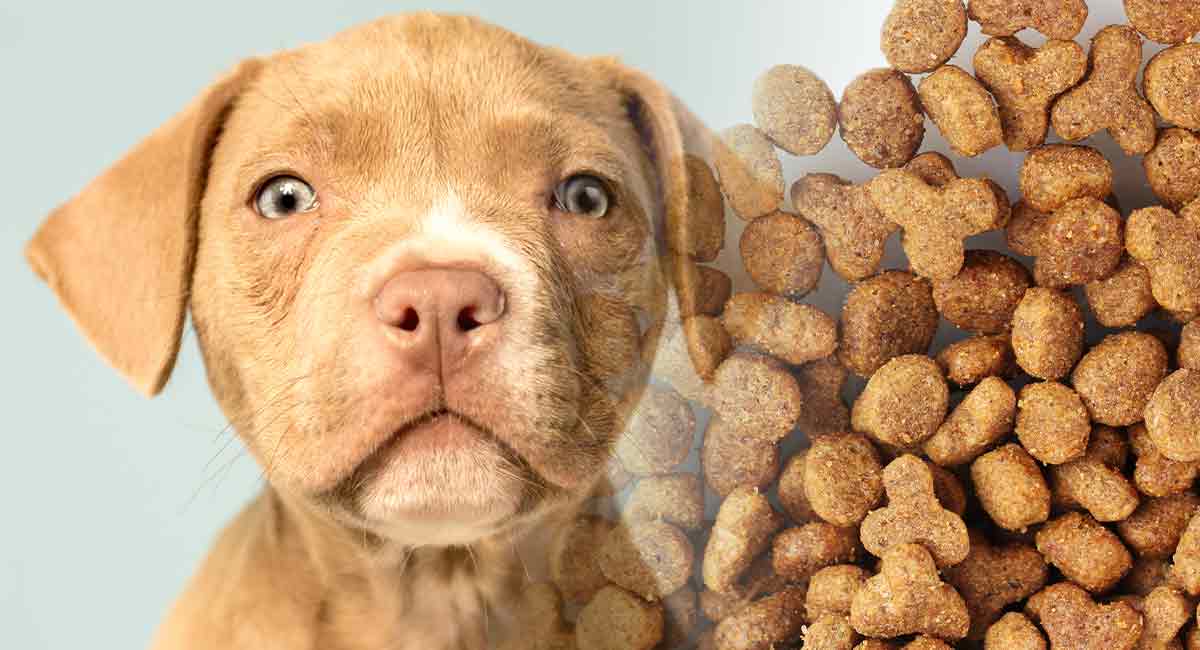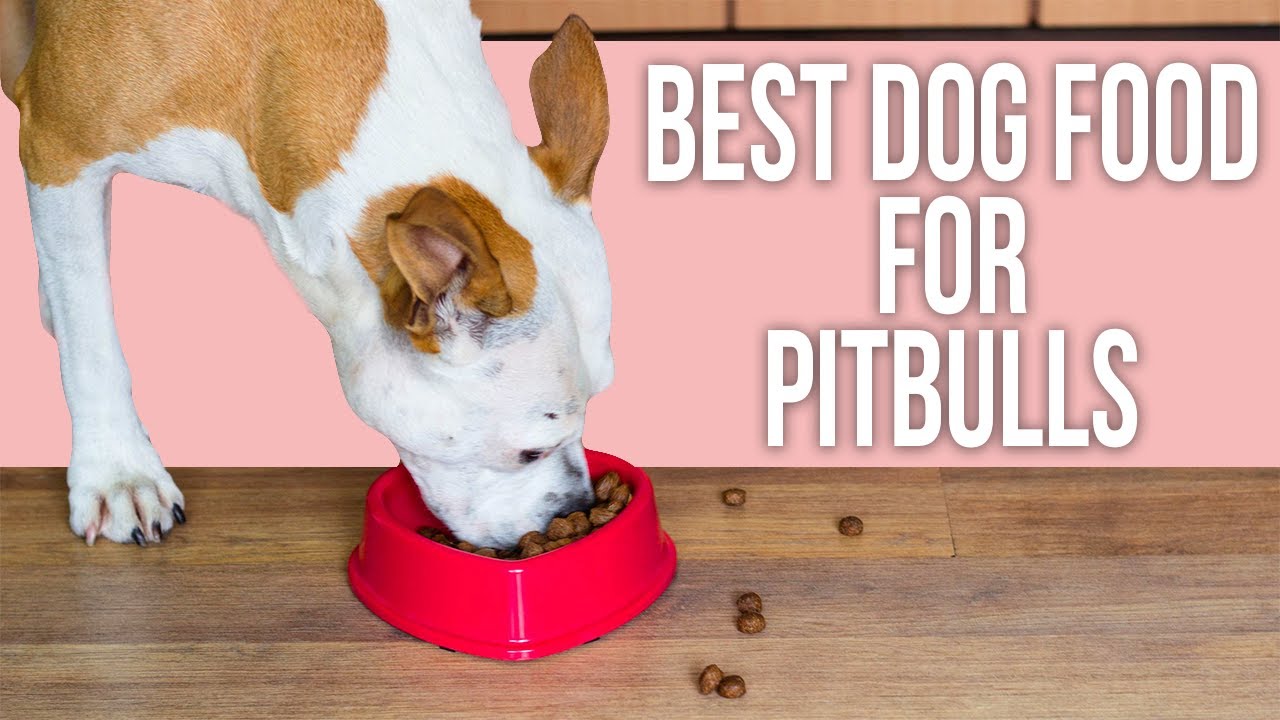If you’re thinking about getting a Pitbull puppy, you should know that they’re among of the kindest and most loving dogs on the planet. Regardless of the many negative stereotypes that surround them.
They have a higher risk of developing certain health issues, such as food allergies. These, on the other hand, may be easily addressed by finding the best dog food for your Pitbull puppy’s unique nutritional requirements.

The name “pitbull” may refer to a number of different breeds. This article, on the other hand, will teach you all you need to know about feeding the most popular Pitbull breeds.
Make sure you know exactly what your puppy was given at the shelter or breeder when you bring him home. The best dog food for Pitbull puppies for the first few weeks after they are born is whatever they were fed when they were born. This will provide plenty of time for your puppy to acclimate to his new environment.
When you’re ready, make the transition to a new Pitbull puppy food gradually. Mix 10% of the new meal with 90% of the old on the first day, and then gradually increase the new food over the course of a week. As a result, your Pitbull will have no gastrointestinal problems.
What Is the Best Pitbull Puppy Diet?
Always consult your veterinarian for information on the best dog food for Pitbull puppies. However, there are certain broad standards you should follow if you’re just getting started.
Pitbull puppy chow should have a minimum of 22.5 percent high-quality protein. This is usually calculated using dry matter. However, the rest of the diet is also vital. In particular, how the proteins are put together and whether or not nutrients like phosphorus, calcium, or magnesium are present.
Your Pitbull can’t live just on protein. Your dog may develop joint problems and grow fat if he or she takes too much protein. As a consequence, you must avoid overfeeding your dog and gradually convert him to a high-quality, varied diet.
The best dog food for Pitbulls will supply this variety of nutrients.
Favorite Dog Food for Pitbull Puppies
There are various alternatives available when it comes to picking the best dog food for Pitbulls. You may feed commercial kibble or wet food to your dog. You may also give your Pitbull puppy raw or cooked food that you make yourself.
The most important thing is to choose a puppy chow that meets AAFCO standards. The finest dog food for Pitbull puppies, on the other hand, may vary depending on your dog. You may need to be particularly careful about the chemicals in your puppy’s diet if he has a food allergy or a sensitive stomach.

The Most Common Pitbull Health Issues
Pitbulls are known for being strong, muscular dogs, but they do have a few health concerns that are rather common in the breed.
Fortunately, you can help your Pitbull avoid some of these issues by monitoring what you give them.
Keep in mind that certain hereditary disorders aren’t entirely preventable.
Giving your Pitbull the right nutrients, on the other hand, may help to slow the onset of these diseases and relieve the symptoms your Pit is experiencing.
Hip Dysplasia is a condition that affects the hip joint.
One of the most common health issues in Pitbulls is hip dysplasia. It’s a hip joint problem that afflicts many muscular or larger breeds.
Hip dysplasia occurs when the hip and femur of a Pitbull grow wrongly at the same time, causing the femur to rub against the hip bone instead of resting properly in the socket. This results in pain, limited mobility, and the possibility of lameness.
Worse, when the condition progresses, it may lead to other bone illnesses including arthritis.
As a consequence of hip dysplasia, a dog’s quality of life may decrease to the point where he or she must be euthanized. Major surgery, such as hip replacements or osteotomies, may be required in certain dogs.
Even though this disease is hereditary, you may help your Pitbull’s quality of life by giving him nutrients like glucosamine and chondroitin, which we’ll discuss lower down in this post.
